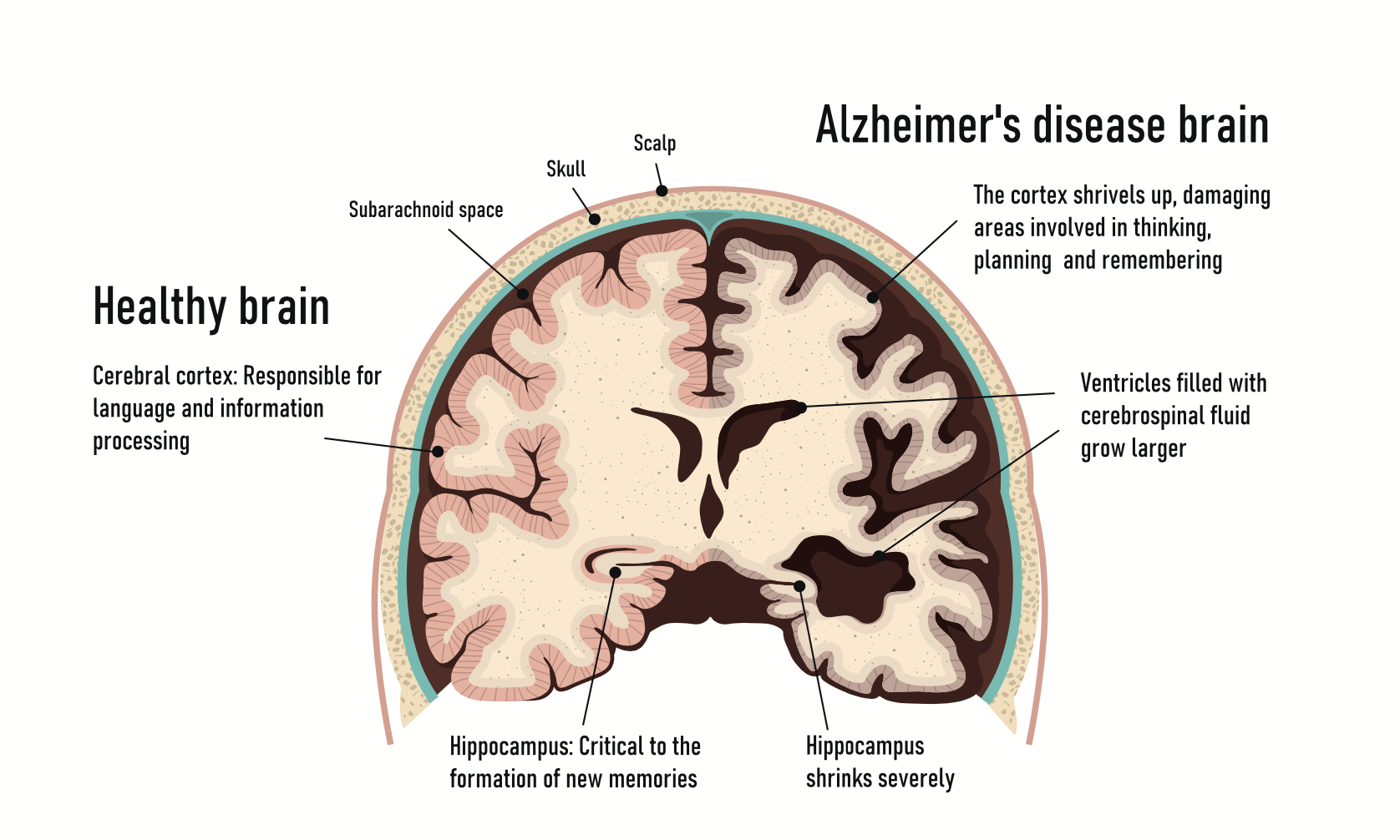-
Medical journals
- Career
At the Crossroads: 5 Options for Alzheimer's Disease Pharmacotherapy
9. 2. 2023
Currently, we have 5 basic options for the pharmacotherapy of Alzheimer's disease. Is memantine, one of the three cholinesterase inhibitors, or combination therapy the most effective? A review article by Japanese and American authors evaluates the literature on the safety and efficacy of cognitive treatments for Alzheimer's disease.
Memantine
Memantine is a non-competitive antagonist of N-methyl-D-aspartate (NMDA) receptors with voltage-dependent effects and low to moderate affinity. It modulates the effects of pathologically elevated glutamate levels, which lead to neuronal damage.
A meta-analysis of placebo-controlled studies on memantine monotherapy in patients with moderate to severe Alzheimer's disease demonstrated a mild but statistically significant beneficial effect of memantine in cognitive, behavioral, and functional areas compared to placebo. It is a well-tolerated treatment, with a therapy discontinuation rate comparable to placebo. Dizziness and fatigue occurred more frequently in patients taking memantine than in the placebo group. The incidence of hyperkalemia, agitation, and psychosis symptoms was significantly lower with memantine treatment compared to placebo.

Cholinesterase Inhibitors
Cholinesterase inhibitors (ChEI) facilitate cholinergic transmission by slowing the breakdown of acetylcholine released by functionally intact cholinergic neurons. As a result, cognitive function improvement can be achieved in patients.
The ChEI used in the therapy of Alzheimer's dementia include donepezil, galantamine, and rivastigmine. Donepezil and galantamine are selective reversible inhibitors of acetylcholinesterase. Additionally, galantamine enhances the effect of acetylcholine on nicotine receptors, likely through binding to an allosteric binding site. Rivastigmine is a pseudo-irreversible inhibitor of both acetyl - and butyrylcholinesterase.
In monotherapy, these drugs have a favorable effect on cognition compared to placebo but do not affect the behavioral component of the disease. They are not always well-tolerated, and therapy discontinuation is more frequent than with placebo, mostly due to gastrointestinal issues such as nausea, diarrhea, and vomiting.
Two Are Better Than One
Another option is combination therapy with memantine and a ChEI. Meta-analyses suggest a marginal superiority of the combination over ChEI monotherapy in cognitive functions. Additionally, the combination is significantly more effective than ChEI monotherapy in reducing behavioral symptoms, improving overall clinical assessment, and speech fluency.
Combination therapy is comparable to ChEI monotherapy regarding therapy discontinuation rates. Compared to ChEI monotherapy, patients on combination therapy more frequently experience drowsiness and weight gain. An interesting safety finding was specifically noted for the combination of memantine with donepezil, which is very well-tolerated with a discontinuation rate comparable to placebo. Based on the meta-analyses summarized in the cited work, the combination of memantine with donepezil seems to be the most advantageous.
(dos)
Source: Matsunaga S., Kishi T., Nomura I. et al. The efficacy and safety of memantine for the treatment of Alzheimer's disease. Expert Opin Drug Saf 2018; 17 (10): 1053−1061, doi: 10.1080/14740338.2018.1524870.
Did you like this article? Would you like to comment on it? Write to us. We are interested in your opinion. We will not publish it, but we will gladly answer you.
Labels
Neurology General practitioner for adults Psychiatry Allergology and clinical immunology Dermatology & STDs Gynaecology and obstetrics Neonatology ENT (Otorhinolaryngology) Paediatrics
Latest courses
Go to courses
Popular this weekFexofenadine – Non-Sedative and Immunomodulatory Antihistamine in the Treatment of Allergic SymptomsWhole articleLogin#ADS_BOTTOM_SCRIPTS#Forgotten passwordEnter the email address that you registered with. We will send you instructions on how to set a new password.
- Career


